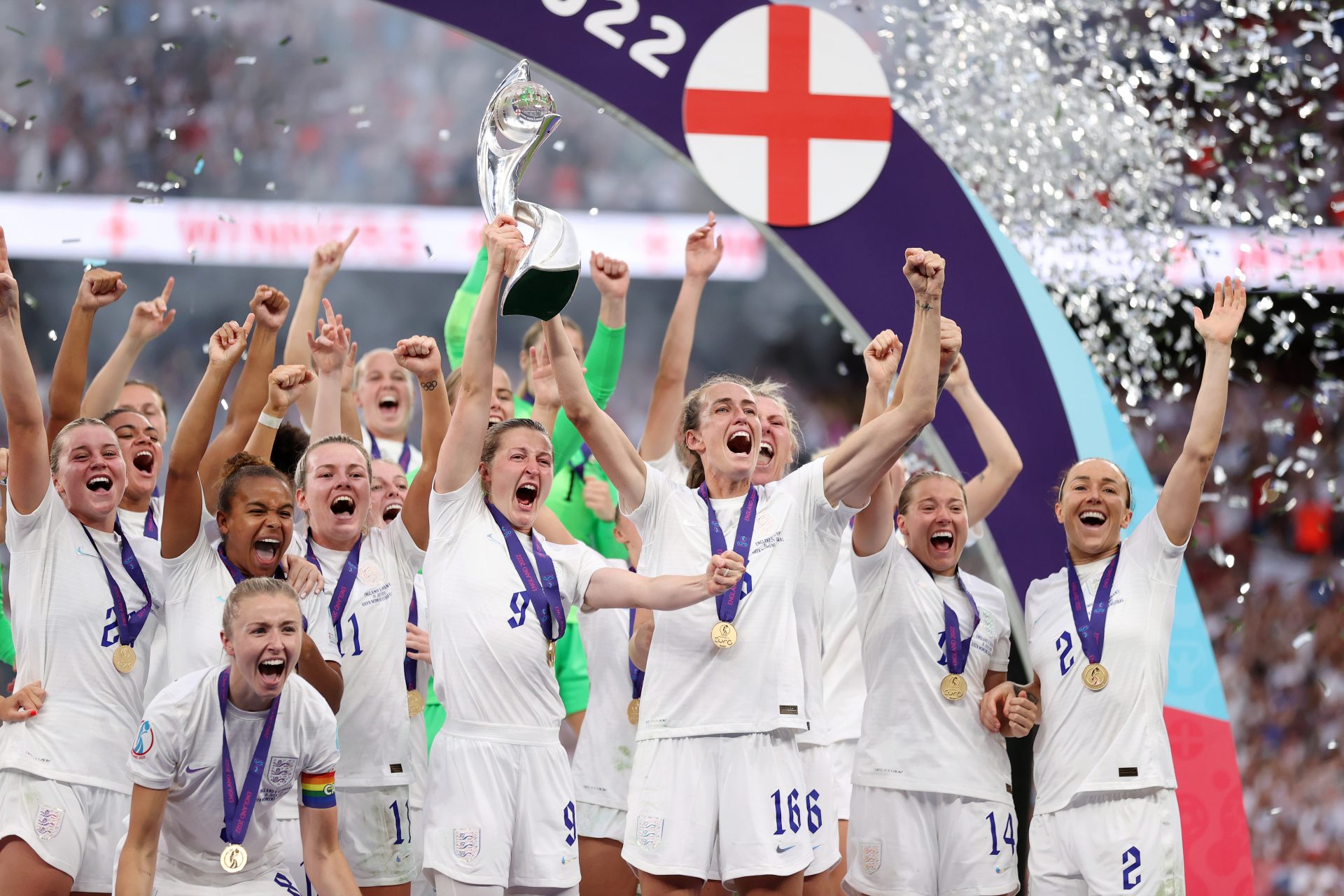
A viral tweet is bringing to light the struggles against sexism that England’s top players, including Ellen White and Lucy Bronze, have faced on their journey to become European champions.
Between calls for the team to be honoured by the Queen to 146% spikes in searches for women’s football kits, it’s clear that the country is still in full-on celebration mode following the Lionesses’ historic Euro 2022 victory on Sunday night.
But as Lucy Bronze, Chloe Kelly, Jill Scott and the rest of the squad are given their long overdue flowers, the sexism they’ve faced on the road to becoming European champions is being rightfully highlighted.
A now-viral tweet shared the front page of The Bucks Herald from 1998, featuring a then nine-year-old Ellen White after she was banned from playing football for boys’ teams in her local youth league, despite captaining the Arsenal girls’ under-11 side at the time.
“Soccer girl banned by league for boys. Ellen is only nine and can’t fathom why she can’t play football,” the headline read, as a young White posed in her kit with a ball.
The image was then placed alongside a powerful picture of White holding the Euro 2022 trophy, with the caption “Never give up”.
White, who played throughout the tournament, is also the record England women’s goal scorer and has been named England’s International Player of the Year three times.
“What a reminder of the barriers they faced and the power of never giving up,” one user commented alongside the tweet.
“Wondering what the ‘fuss’ was about and why tears were shed on Sunday evening? This …” added another.
You may also like
Women’s Euro 2022: the best reactions to the Lionesses’ win in the final against Germany
In the wake of their win, a number of England players have shared their negative experiences playing in boys’ leagues.
“People were nasty,” captain Leah Williamson told ID in a video interview about the sexism she faced on the pitch as a young player. “I’d get kicked by boys whose parents were sort of embarrassed. But I knew that if I scored the most, that’s what would hurt the most.”
“You can kick me all you want, but if I win, I win.”
In a 2022 FIFA documentary, right-back Lucy Bronze also shared that while she was by far the best player in the local under-11 boys’ team, the FA rules meant she was barred from taking part in the next age group “in case she got hurt”.

Women’s football was hugely popular in the early 1920s, attracting sell-out crowds and hosting international fixtures nearly 10 years before its players could cast a vote in the UK.
However, in 1921, the FA voted to ban them from playing on Football League grounds, saying: “The game of football is quite unsuitable for females and ought not to be encouraged.”
Women were not forbidden from playing the sport outright, but were no longer able to play in stadiums or on pitches. The ban lasted for nearly 50 years until the Women’s FA was formed in 1969.
In 1971, the FA lifted its ban and the first women’s FA Cup final came that same year.
Images: Getty
Source: Read Full Article